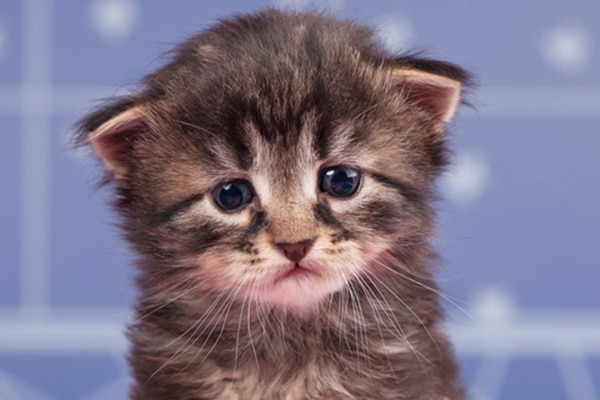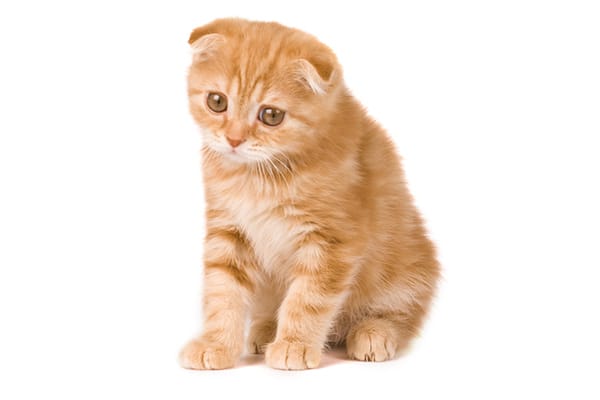Cat Depression — Signs, Causes and How to Treat It
The post Cat Depression — Signs, Causes and How to Treat It by Angie Bailey appeared first on Catster. Copying over entire articles infringes on copyright laws. You may not be aware of it, but all of these articles were assigned, contracted and paid for, so they aren't considered public domain. However, we appreciate that you like the article and would love it if you continued sharing just the first paragraph of an article, then linking out to the rest of the piece on Catster.com.
Humans aren’t the only ones who struggle with depression. Cats are highly perceptive and easily react to their environments. Cat depression might be triggered by something as seemingly small as a change in food and kitty litter to a situation as considerable as a move or a death.
Symptoms of cat depression include, but are not limited to:

Cats display depression symptoms in a number of different ways. Photography © 2002lubava1981 | Thinkstock.
- A cat not eating, or overeating
- Under- or over-grooming
- Hiding, or avoiding affection
- Aggressive behavior
- Excessive vocalization
- Inappropriate litter box behavior
Just because your cat exhibits any one or more of these symptoms doesn’t automatically mean he’s in the throes of depression. He could be presenting with physical or behavioral signals that point to other illnesses, so it’s important to visit your vet and rule those out before considering cat depression.
Cat consultant Ingrid King advises, “To treat feline depression, physical symptoms need to be addressed first, especially inappetence. A cat who doesn’t eat for 24 to 48 hours is at risk for developing hepatic lipidosis, a life-threatening condition.”
Here are common reasons for cat depression and some possible solutions for responding to them.
Cat depression may stem from the death of a human or another animal

Losing a pet or human might make a cat depressed. Photography ©kipuxa | Thinkstock.
“Despite a reputation for being aloof, [cats] are social animals who form strong bonds with humans or other cats,” Ingrid says. “As a result, feline depression often sets in after the loss of a companion.”
It’s important not to force attention upon your grieving cat, but do provide her with extra attention and cuddles if she’s open to receiving them. Offer kitty the same love and compassion you’d want after losing a loved one.
Cats get depressed because they’re not getting enough interaction
Some people think that cats are solitary beings who don’t need or want a lot of human interaction. This isn’t true at all. Although some cats enjoy more interaction than others, they all require attention — and lack of said attention can lead to cat depression.
If you’ve recently adopted a cat who’s been neglected, be gentle with her, but bring out interactive toys like wands with dangly feathers to encourage her to play and interact. A single cat may also enjoy the company of another cat to help with boredom and encourage exercise and companionship.
Change in food or litter might cause cat depression
Cats are creatures of habit, and that should be taken into consideration when making changes to their daily routines. This includes litter and food, and not only the brands or types but their locations in your home. With both food and litter, gradual changes are best and give kitty time to adjust.
As far as litter boxes go, it’s a good idea to keep the old one in the original location while your cat gets used to the new one. If you’re not willing or able to provide a temporary box, then move the box toward the new location a little bit every day until it reaches the new spot.
Cat depression happens because of other changes in the household
Cat depression may be caused by divorce, children leaving for college, a new spouse or any other change in what they’ve come to know as “home.” Being in tune with your cat’s behavior changes and offering welcome attention and play help him feel like he’s still in a safe place.
A final word on cat depression
“Depressed cats, especially cats who are grieving, will need extra compassion and care from their humans,” King explains. “Spending extra time with the cat, providing new toys or beds, interactive playtime, and special treats can all help. Holistic modalities such as Reiki, Tellington Touch and other forms of energy healing can be beneficial. Holistic remedies such as Jackson Galaxy Solutions can support depressed cats through the healing process. In extreme cases, your cat’s veterinarian may prescribe medication.”
Thumbnail: Photography ©Stegarau | Thinkstock.
This piece was originally published in 2017.
Struggling with depression yourself? These tips can help cure depression >>
Read more on cat health on Catster.com:
- Mobile Vet Care — 4 Advantages and 1 Drawback
- Leaving for the Holidays? Tips on Holidays and Cat Care
- The Real Costs of Treating Cat Diseases and Injuries
The post Cat Depression — Signs, Causes and How to Treat It by Angie Bailey appeared first on Catster. Copying over entire articles infringes on copyright laws. You may not be aware of it, but all of these articles were assigned, contracted and paid for, so they aren't considered public domain. However, we appreciate that you like the article and would love it if you continued sharing just the first paragraph of an article, then linking out to the rest of the piece on Catster.com.




Post a Comment